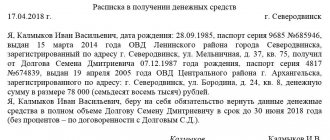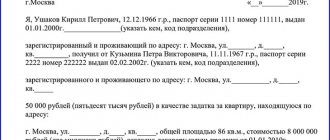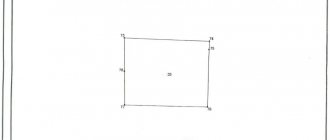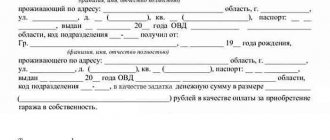Types of exchange
Modern civil and housing legislation provides for the choice of exchange options based on the current situation, or from the preferences of the parties to the transaction, the following can be distinguished among them:
- Direct exchange, involving the conclusion of an exchange agreement.
- An alternative exchange based on simultaneously executed sales and purchase agreements.
In turn, the exchange procedure is divided into types :
- equivalent (no additional payment);
- with an additional payment provided by one of the parties to the transaction.
The apartment can be exchanged for another apartment or room with an additional payment, including in a communal apartment or hostel. Exchange options for a house, cottage or land are also allowed.
Straight
Regulated by the norms of Article 567 of the Civil Code of the Russian Federation. A special feature of the exchange agreement is that the parties are guaranteed to move to the counterparty’s living space upon completion of the transaction. There are no difficulties associated with mutual settlements between the parties ; the risks when transferring money and objects are practically reduced to zero.
Naturally, these circumstances are positive. However, it is impossible to avoid the disadvantages that lie in the difficulty of choosing a suitable object for the transaction. Due to the simplicity of real estate sales, few seek and find out whether it is possible to arrange an exchange without buying and selling.
Accordingly, finding a housing option that would meet all the needs of family members is much more difficult; in addition, the risk of problems with the title of the apartment remains open.
REFERENCE : The problem with the title most often manifests itself through “blank spots” in the history of the apartment, when third parties are identified who claim the right to use the housing.
Through buying and selling
A special feature of this type of transaction is the variety of forms of choosing objects, while maintaining the property guarantees that the exchange provides. This is a definite plus.
Since the purchase and sale comes into force here, through which the actual change of housing occurs, the negative aspects may include both increased risks of dishonesty of one of the counterparties and other factors.
Including the lack of purity of one of the transactions, the contestability or nullity of one of the concluded agreements. Increased risks are associated with the involvement of a larger number of counterparties than with direct exchange.
Sometimes a realtor has to put together a fairly long chain of alternative sales in order for the deal to be completed. At any moment, before the transaction is completed, such a chain can be destroyed by the refusal of one of the participants. The procedure is also complicated by the deliberate payment of a deposit, which is required under a purchase and sale agreement.
With surcharge
If one of the apartments has advantages, then in order to exchange it, an additional payment is required. Precedents that allow surcharges may include the following :
- large living space;
- more rooms, a balcony or loggia;
- one object is exchanged for two or more;
- the best technical and cosmetic condition of the premises;
- later year of construction;
- proximity to the center or metro station.
In this case, during the exchange, the acquirer of the listed and other benefits transfers the amount of money agreed upon by the parties.
Apartment share exchange agreement
Often, an apartment belongs to several owners at once, who are entitled only to a share in the common property, which is also a property right, which means that this share can be disposed of , for example, by making an exchange. However, this raises some nuances that should be taken into account.
When exchanging a share in an apartment, it is necessary to obtain permission from other owners , since the law provides a pre-emptive right of purchase (exchange) in the event of the sale of a share by one of the owners. Otherwise, the procedure for exchanging a share of an apartment does not differ from the procedure for exchanging a home as a whole.
Which is better to choose?
When choosing an exchange option, you should be guided by both personal preferences and market conditions in the region. Typically, the insolvent population is inclined to make an exchange that does not require financial investment.
It also makes sense to count on an exchange if homeowners are in no hurry and are willing to wait an indefinite period of time until the desired object is found.
If the real estate market is active, it is certainly more advisable to turn to purchase and sale. This method will allow you to sort through a larger number of options for selecting an object, and will also significantly reduce the time of the transaction. In general, you need to pay attention to the positive and negative dynamics of events.
Required documents
To draw up a contract, a package of documents similar to a purchase and sale is required. The difference is that both participants collect the same papers.
The specified list of documents is needed to register property rights. Plus, you must provide an exchange agreement and an acceptance certificate, as well as 2 receipts for payment of state duty.
The state duty is paid by both parties to the transaction, since registration of 2 objects is required at once.
How to apply correctly?
An exchange is a property transaction that resolves the problems of two or more parties involved in it. Therefore, the main rule is to proceed from mutual interests and show interest in the mutually beneficial aspects of the transaction.
IMPORTANT : You should know that if the provisions of the contract are not fulfilled and the property is of inadequate quality, the contract is terminated in accordance with the provisions of Article 450 of the Civil Code of the Russian Federation.
Main stages
The exchange algorithm is as follows:
- Contacting a real estate company to search for an object for exchange, or searching independently through the relevant websites.
- Preparation of documentation for housing required during exchange.
- As proposals are received from potential participants in the transaction, viewing the proposals and selecting the most suitable object from among them.
- Checking the legal capacity of the premises and its copyright holders, requesting an archival extract from the apartment register to study the title of the object. Mutual provision of your documentation to confirm the legal purity of the transaction on your part.
- Oral discussion of the specifics of the transaction, preliminary drafts of the exchange agreement. If the transaction occurs through the conclusion of a deed of sale, a preliminary agreement is drawn up with the payment of a deposit.
- Drawing up a contract of exchange or purchase and sale. Its registration. Drawing up and signing the transfer deed.
- Moving to a new home, registration at the place of residence.
Required documents
The legal capacity of an object prepared for a property transaction is determined by the presence of the following package of documentation:
- Title document proving ownership: previously concluded property agreement, certificate of inheritance, privatization agreement, etc.
- Extract and USRN.
- Cadastral and technical passport of the apartment.
- The spouse's consent to the transaction, certified by a notary.
- Extract from the apartment register - you should request an extended or archival extract.
- Cadastral certificate confirming the absence of collateral and seizure.
- Certificates and copies of personal accounts from the housing department confirming the absence of arrears in rent and utilities.
Where to contact?
If the exchange procedure began with an agreement concluded with a realtor or a real estate company, then there is no need to apply anywhere else - the property transaction will be carried out in accordance with the service agreement.
When searching for an object to conduct a transaction on your own, you need to seek support from a lawyer. In some cases - if there are minors or incapacitated family members, if we are talking about the exchange of a share of housing, etc., the transaction must be concluded by a notary.
REFERENCE : At the discretion of the parties, the exchange agreement can be drawn up and certified at a notary's office in all cases.
Agreement
When drawing up an exchange agreement, the parties approach based on the specifics of the situation:
- to a real estate or law company;
- to a notary's office;
- to another place - by agreement.
They must have with them their civil passports, as well as passports or birth certificates of all family members. If an authorized representative acts on behalf of one (both) parties, he presents a notarized power of attorney.
The authorized person draws up an exchange agreement in triplicate , which each representative of the party to the transaction must familiarize himself with.
The contract must cover all the necessary provisions and indicate all the parameters of the housing to be exchanged. After familiarization, the contract is signed.
Additionally, a transfer deed signed by the parties at the time of drawing up the agreement is presented. If it has not been drawn up previously, then provisions are included in the agreement that the signing of the agreement has the force of signing a transfer deed.
Each participant in the transaction signs all three copies . Then one copy is transferred to the parties to the transaction, the third copy is intended for transfer to Rosreestr.
ATTENTION : If the exchange involves an additional payment, you must obtain a receipt for the transfer of the additional payment.
Registration of a transaction
Property transactions with real estate are subject to registration in order to enter information about the exchange of apartments into the cadastral records of Rosreestr. This point is mandatory, since ownership of real estate arises only upon completion of the registration procedure. This is enshrined in the legislation:
- Law No. 122-FZ of July 21, 1997;
- Law No. 218-FZ of July 13, 2015;
- Article 131 of the Civil Code of the Russian Federation.
To do this, the parties apply directly to the territorial office of Rosreestr at the location of the property, or to a multifunctional one. Upon presentation of a passport, and representatives additionally - a power of attorney, applications for the transfer of ownership are drawn up in accordance with the conclusion of an exchange agreement.
The application is accompanied by a title document and an extract from the Unified State Register or a certificate of ownership. Documents are accepted against signature.
Upon completion of registration, new owners come for a second appointment to receive a registered agreement and an extract from the Unified State Register of Real Estate, stating the legal powers of the new owners.
Deadlines and costs
According to the new standards established by the regulations of Law 218-FZ, registration must be completed within ten days if both counterparties submitted applications at the same time. In other cases, registration may continue for a month.
For the registration procedure, a state fee of 2,000 rubles is charged for each contract subject to registration. Notarized contracts are not subject to duty .
Concept
What is an agreement to exchange an apartment for a house with a plot?
In such a transaction, the party that owns the apartment exchanges it for a house with a plot of land on which it is located.
If the participants agree that the exchange is unequal, one of them makes an additional payment to the other in money.
In this transaction, the first participant loses ownership of the apartment (is its seller), and in return acquires ownership of the house and land (is its buyer).
The second loses ownership of a plot of land with a house on it (is their seller), acquires ownership of an apartment (is their buyer) (read about exchanging a house for an apartment).
What is it needed for?
The purpose of preferring the option of agreement under consideration is to obtain the desired result in the shortest possible time with a minimum of costs.
Other tasks are solved at the same time:
- The risk of deception and the possibility of fraud are reduced. Unlike purchase and sale, during a barter transaction, not a single participant is left without housing.
- The one-time nature of the transaction eliminates the possibility of losing funds due to inflation. Sales and purchase transactions contain such a danger, as we have repeatedly seen during the years of reform.
- It is difficult and risky to save or borrow the amount needed for a purchase due to devaluation, financial illiteracy of the population, and bank fraud. The type of transaction under consideration solves the problem of mutual shortage of cash .
- It is difficult for a non-specialist to adequately evaluate one’s own property intended for sale and someone else’s property being purchased. A person acquires something that is individually valuable to him, although from a market point of view it may not be valuable.
- The barter transaction is reliably protected from bailiffs by Article 446 of the Code of Civil Procedure.
The only apartment, house with a plot belong to the category of real estate that cannot be seized from a person for debts or confiscated by a criminal verdict. If the debtor momentarily turns the only home into money, the creditor has the right to seize it. Such a debtor risks becoming homeless.
- Among Russians there are many frivolous citizens who find it difficult to resist the temptation to squander the cash they suddenly find themselves in their hands: drink, spend on drugs, entertainment, show off their luxury and extravagance. As a result of this behavior, it is easy to leave yourself and your family without housing and the opportunity to purchase it. Mena protects against such reckless behavior.
- Tax savings. When exchanging, personal income tax is taken only from the amount of the surcharge if it is officially mentioned in the contract (read about the exchange agreement with a surcharge). An alternative option for the purchase and sale of real estate owned for less than three years involves the payment of personal income tax by both parties , as a result we get a doubling of the tax .
- Exchange of premises in an apartment building for a private house is an excellent option for solving the problems of relatives. Parents are not able to run a garden due to their age; they need city comfort. The son’s family, on the contrary, is full of energy; they need space for a garage, a swimming pool, a bathhouse, and a greenhouse. In this case, changing is a natural solution, in which none of the participants loses the opportunity to visit their previous place of residence.
- Such an agreement eliminates the need for temporary rental housing while searching for new options through purchase and sale. This saves the family from temporary inconveniences that may drag on.
Rights and obligations of the parties
In case of change, the seller of real estate is obliged to transfer it; buyer must accept.
Each party is obliged:
- Transfer objects:
— free from the rights of other persons; — with all equipment, documents; - in the quantity specified in the contract; - exactly those specified in the agreement; — agreed quality and configuration; - with keys, glazed windows, entrance doors.
- Notify the counterparty within a reasonable time of the detected violation of the terms of the contract.
- Accept the transferred objects.
- Pay equally the costs associated with the transaction and its registration.
Each party has the right to demand that the counterparty fulfill its obligations. Participants may be released from performing their duties if force majeure circumstances arise.
The document is drawn up in three copies (for both parties and the registering authority). After signing the transfer deeds and state registration of the agreement, mutual obligations are considered fulfilled.
Is it possible to carry out the procedure in special situations?
Owned living space for less than 3 years
If it has been owned for less than 3 years, then it is possible to change the apartment, but its legal capacity entails the obligation to pay tax as income for individuals. Therefore, when registering an exchange of a deed, a 13% tax deduction will be charged on the amount specified in the contract for personal income tax.
If an exchange agreement is drawn up, a certificate from the BTI is provided about the inventory value of the housing, which is significantly lower than the market value. The personal income tax deduction is equal to 13% of the amount exceeding 1 million rubles. Housing worth up to a million is not taxed .
In addition, you should be especially careful with such apartments, checking them for legal purity more carefully. The fact is that, according to the provisions of Article 196 of the Civil Code of the Russian Federation, after three years the statute of limitations expires. And if the transaction was not fully legally clear, then responsibility for it rests with the actual owner, regardless of the fact of the transfer of property rights.
Such cases are especially common when entering into inheritance, due to which persons whose inheritance rights have been violated can challenge the legal capacity of the heir within three years.
Purchased with maternity capital
If, when purchasing an apartment, funds from the Maternity Capital certificate were invested in it, then an exchange is possible, but you will need to comply with the conditions established for such cases.
- Firstly, the exchange must be made in the interests of children, who should receive certain benefits during the exchange. At a minimum, their interests should not be infringed in any way. To supervise the fulfillment of this condition, guardianship and trusteeship authorities are involved.
The owner of an object acquired through the involvement of QMS is required to obtain permission from the guardianship authorities, which is issued on the basis of an application and documentary justification of the prospects for improving living conditions.In addition to the fact that the consent received from the guardianship authorities must be attached to the package of documentation, the registration of the procedure takes place in a standard manner, but must be certified by a notary.
- Secondly, the owner’s children must be included in the apartment purchased with funds from the certificate as co-owners.
Therefore, they will need to be included in the exchange agreement in the same capacity. After drawing up and registering the contract, you must provide a report that all the required conditions have been met, attaching documentary evidence in the form of copies of documents for the new housing.
Preliminary agreement for the exchange of an apartment
Parties wishing to exchange apartments may enter into a preliminary exchange agreement . In practice, this situation arises if the property is under an encumbrance (pledge, mortgage) or if the parties agreed to transfer the real estate in a certain technical condition, having previously carried out repairs. Also, a preliminary exchange agreement can also be concluded if the parties need to collect additional documents, for example, an extract from an apartment card or house register about the persons registered in the apartment.
Example
Between Kirillov V.S. and Kudryashov A.V. a preliminary agreement for the exchange of an apartment was concluded, which established the intention of the parties to enter into an agreement to exchange their homes in six months. The specified period is determined by Kirillov’s payment of the mortgage on the apartment planned for transfer. After six months had passed and Kirillov had paid the mortgage in full, the parties entered into the main agreement and made an exchange.
When drawing up a preliminary exchange agreement, its parties must be indicated, the date and signatures must be indicated. The subject of exchange and other conditions that indicate the need to draw up a full-fledged exchange agreement in the future (possibly indicating the expected date) must be indicated.











